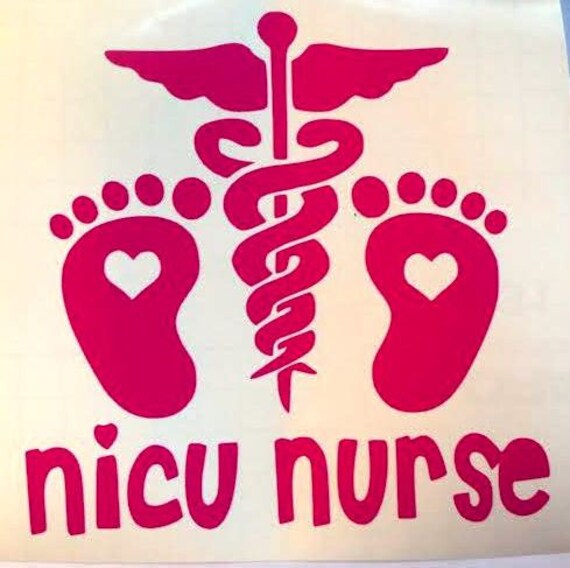As you can see below there are many different medical supplies that the nurses in the nicu have to become familiar with. This is a list and description of the most common supplies used within the nicu. I found and took this list from: http://www.marchofdimes.org/baby/common-nicu-equipment.aspx#
Just to go through and read all of these really makes me understand a little more of what I am in for and the importance of the knowledge I will need for my career. I am more than ready!
Common NICU equipment
The NICU contains many machines and other types of equipment used to care for sick babies with many different problems. These machines seem less intimidating when you understand how they can help your baby. This article introduces you to some of the equipment you will see. Your baby may also be treated with other specialized machines during her NICU stay.
Bililights
The bright blue lights placed over the baby's incubator are used to treat jaundice(yellowing of the skin and eyes). Babies with jaundice usually receive the "phototherapy" treatment for three to seven days.
Blood pressure monitor
A machine connected to a small blood pressure cuff wrapped around a baby's arm or leg. The cuff automatically takes the baby's blood pressure at regular times and displays the numbers on a screen.
Cardiopulmonary monitor
A machine that tracks the baby's heart and breathing rates. It is connected to the baby by small adhesive monitoring pads placed on her chest. The monitor displays information on the screen, which can be printed onto paper. If the baby's heart or breathing rate becomes too fast or too slow, an alarm will sound.
Central line
A small plastic tube that is placed in a large blood vessel. Babies get medicine and fluids through this tube. Also, doctors can draw blood through the tube. A PICC (peripherally inserted central catheter) line is a type of central line, which is placed in one of the major blood vessels.
C-PAP (continuous positive airway pressure)
Air is delivered to a baby's lungs either through small tubes in the baby's nose or through a tube that has been inserted into her windpipe. The tubes are attached to a mechanical ventilator, which helps the baby breathe, but does not breathe for her.
Endotracheal tube
A small plastic tube, which is inserted through a baby's nose or mouth down into the trachea (windpipe). The tube is attached to a mechanical ventilator, which can either help a baby breathe (as in C-PAP) or breathe for him.
Incubator
Babies are placed in this clear plastic bed, which keeps them warm and protects them from germs and noise.
Intravenous line
Most premature and sick babies cannot be fed immediately, so they must receive nutrients and fluids intravenously (through a vein). A doctor or nurse will insert a very small needle or tube into a tiny vein in the baby's hand, foot, arm, leg or scalp. The needle is taped in place, and attached to a thin plastic tube (IV line). The tube goes to an IV pump connected to a pole next to a baby's bed. The baby also can receive medications and blood through the IV line.
Mechanical ventilator
A mechanical ventilator is a breathing machine that delivers warmed and humidified air to a baby's lungs. The sickest babies receive mechanical ventilation, meaning that the mechanical ventilator temporarily breathes for them while their lungs recover. The air is delivered to the baby's lungs through an endotracheal tube (a small plastic tube that is inserted through a baby's nose or mouth down into the windpipe). The amount of oxygen, air pressure and number of breaths per minute can be regulated to meet each baby's needs.
Nasal cannula or nasal prongs
Small plastic tubes that fit into a baby's nostrils and deliver oxygen. They often are used with a treatment called continuous positive airway pressure (C-PAP), which uses a mechanical ventilator to deliver pressurized air to the baby's lungs.
Oxygen hood
A clear plastic box that fits over the baby's head and supplies him with oxygen. This is used for babies who can breathe on their own, but still need some extra oxygen.
Pulse oximeter
A small device that is wrapped around a baby's foot or hand and secured with a stretchy bandage. It uses a light sensor to help determine if the baby has enough oxygen in her blood. This sensor does not hurt the baby at all. It helps doctors and nurses determine whether she needs more or less oxygen.
Radiant warmer
An open bed with an overhead heating source that provides heat to a baby. A warmer may be used instead of an incubator if the baby needs to be handled frequently.
Respirator
See mechanical ventilator.
Umbilical catheter
A baby's umbilical cord has two arteries and one vein, which end in his belly button. A thin tube (catheter) can be inserted into one of these vessels and threaded to the aorta, the largest artery supplying oxygen to the body. Through this catheter, doctors and nurses can painlessly draw blood. They don't have to repeatedly stick the baby with needles. They can give him fluids, blood, nutrients and medications through this tube. A small device can be attached to the catheter to continuously monitor the baby's blood pressure.



